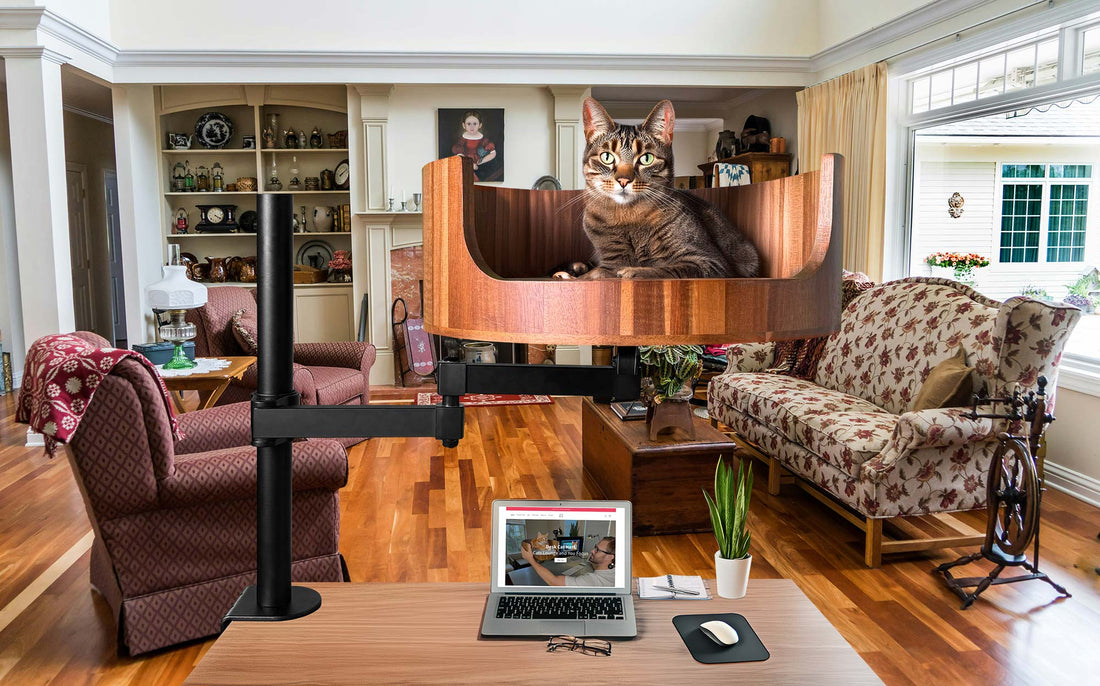
Is My Cat Sick? Signs to Watch For and What to Do
Share
Is your feline friend acting a bit off lately? As pet owners, it can be concerning to see our beloved cats exhibiting signs of illness or discomfort. That's why it's important to be aware of the common signs of sickness in cats and know what steps to take if you suspect something may be wrong. In this article, we will discuss the telltale signs that your cat may be sick and what actions you can take to ensure your pet's health and well-being.
From changes in behavior to physical symptoms, there are several indicators that your cat may not be feeling well. Keep an eye out for noticeable shifts in appetite, energy levels, grooming habits, or litter box behavior. Additionally, symptoms such as vomiting, diarrhea, coughing, sneezing, or lethargy can also warrant a closer look at your cat's health. It's essential to monitor these signs closely and seek veterinary care if you have any concerns about your cat's condition. By being proactive and attuned to your cat's health, you can help ensure a happy and healthy life for your feline companion.
1. Changes in behavior such as decreased activity, excessive grooming, or aggression can signal illness in cats.
2. Physical signs like weight loss, vomiting, or diarrhea should prompt a visit to the vet for further evaluation.
3. Regular check-ups and preventive care can help catch health issues early on and improve prognosis.
4. Pay attention to your cat's eating and drinking habits, as changes in appetite or thirst can indicate underlying problems.
5. Trust your instincts - if you suspect something is wrong with your cat, seek veterinary advice promptly to ensure their well-being.
Changes in Behavior
One of the first signs that your cat may be sick is changes in behavior. Some common behaviors to watch for include lethargy, noticeable changes in appetite, increased or decreased vocalizations, hiding, aggression, or changes in litter box habits. These behavioral changes can be subtle and easily overlooked, so it is important to pay attention to your cat's patterns and notice any deviations.
Physical Symptoms
Aside from changes in behavior, there are also physical symptoms that may indicate your cat is sick. These symptoms can include vomiting, diarrhea, coughing, sneezing, difficulty breathing, excessive grooming, hair loss, lumps or bumps, or changes in weight. It is important to regularly check your cat for any physical changes or abnormalities and consult a veterinarian if you notice any concerning symptoms.
Signs of Pain
Cats are known for masking signs of pain, so it can be challenging to tell if your cat is in distress. Some common signs of pain in cats include panting, excessive grooming of a specific area, reluctance to move or use stairs, changes in posture, vocalizations while being handled, or aggression when touched in a certain area. If you suspect that your cat is in pain, it is crucial to seek veterinary attention promptly to address the underlying cause.
When to Seek Veterinary Care
If you notice any of the signs mentioned above or have concerns about your cat's health, it is important to seek veterinary care. A veterinarian can perform a thorough physical examination, run diagnostic tests if needed, and provide appropriate treatment for your cat's specific condition. Early detection and intervention can greatly improve the prognosis for many illnesses, so do not hesitate to schedule an appointment if you have any concerns about your cat's health.
Frequently Asked Questions
How can Desk Cat Nest help with detecting if my cat is sick?
The Desk Cat Nest provides a cozy and comfortable space for your cat to relax, making it easier for you to monitor their behavior and activities. By observing your cat in this safe environment, you may be able to notice any changes in their eating habits, activity levels, or overall demeanor that could indicate illness.
What signs should I look out for to determine if my cat is sick?
Common signs of illness in cats include changes in appetite, lethargy, vomiting, diarrhea, excessive grooming, or hiding. If you notice any of these symptoms, it's important to consult with a veterinarian for a proper diagnosis and treatment plan.
Can Desk Cat Nest help with monitoring my cat's health long-term?
While the Desk Cat Nest can provide a temporary space for observation, it is not a substitute for regular veterinary check-ups and monitoring. It is important to schedule routine visits with your vet to ensure your cat's overall health and well-being.
How often should I use the Desk Cat Nest to check on my cat's health?
It is recommended to observe your cat in the Desk Cat Nest periodically, especially if you notice any changes in their behavior or appearance. However, the frequency of use may vary depending on your cat's age, breed, and any underlying health conditions. Consult with your veterinarian for personalized guidance on monitoring your cat's health.
In conclusion, choosing a Desk Cat Bed for your sick cat is a valuable choice that can greatly benefit their health and well-being. The elevated design of the bed provides a comfortable and secure place for your cat to rest, which can help reduce stress and promote healing. Additionally, the soft materials used in the construction of the bed are gentle on your cat's body, making it an ideal choice for cats recovering from illness or injury. By investing in a Desk Cat Bed, you can provide your sick cat with a cozy and supportive space to help them feel better and get back on their paws in no time.



















































